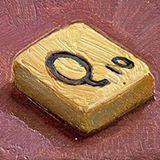

He and his wife are still the majority (perhaps only?) owners, so Linus is still in charge even if he is pretending to delegate some duties.
I think the fact he appeared in the latest video and was still so defensive is enough evidence to prove that point.


I am a semi-frequent WAN show watcher and I definitely get that vibe. Some people will say that Luke stands up to Linus, but from what I’ve seen it’s only superficial. I have never seen him push Linus enough that it becomes a real disagreement–not on an actual controversy like this, at least. The WAN show where they discussed the Billet Labs review is a perfect example: Luke says “well, maybe we should have re-tested” but then Linus goes off on his “$500 of employee time” tangent and Luke doesn’t call that out as completely ridiculous and hypocritical.
He does voice his disagreement, but not in a way that is going to change anything.